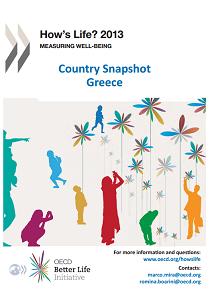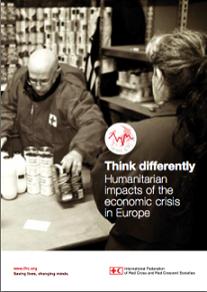European Commission, (2013), Quality of life in Europe: Subjective well-being, Luxembourg: Publications Office of the European Union. This report assesses the impact of the crisis on the subjective well-being of Europeans. In 2011, GDP per capita in 22 out of the then 27 EU Member States was below 2008 levels, and unemployment rates were higher in 25 out of the 27. These indicators demonstrate worrying trends, but the report goes …Read More
Human Life? 2013 – Measuring Well-Being
OECD, (2013), Human Life? 2013 – Measuring Well-Being, Paris: OECD. Every person aspires to a good life. But what does “a good or a better life” mean? The second edition of How’s Life? paints a comprehensive picture of well-being in OECD countries and other major economies, by looking at people’s material living conditions and quality of life across the population. In addition, the report contains in-depth studies of four key …Read More
EU 2013 Report on Policy Coherence for Development
European Commission, (2013), “EU 2013 Report on Policy Coherence for Development”, Commission Staff Working Document, SWD(2013) 456, October. Τhe European Commission published its report on policy coherence for development which lays out the progress made by the EU and its Member States in ensuring that their action in areas such as trade, agriculture, security or migration is in line with the goal of overcoming poverty in developing countries. The report …Read More
Crisis knocking EU 2020 goals off track
Mahony, H., (2013), “Crisis knocking EU 2020 goals off track”, EUObserver, 29 October. The economic crisis has knocked the EU’s longterm strategic targets off track with planned poverty-reduction and employment goals unlikely to be met by 2020. “Without adequate policy measures to rapidly reverse this escalating poverty trend, the EU risks moving away from the Europe 2020 headline target on poverty,” said a Eurostat report, published Tuesday (29 October) on …Read More
European Public Opinion: Is this the end of pessimism?
Zalc, J., (2013), “European Public Opinion: Is this the end of pessimism?”, Fondation Robert Schuman, Policy Paper No 290, October. After many long years of crisis during which the state of European public opinion has deteriorated, notably regarding its support of the Union and its institutions there are now some signs which seem to indicate that things are picking up. At a time when economic forecasts for 2014 give reason …Read More
A ‘Poldermodel’ For The EU?
Van Waarden, F., (2013), “A ‘Poldermodel’ For The EU?”, Social Europe Journal, 16 October. National social policy programs across Europe have their roots in three different traditions of origin. There is the (partially British) liberalist regime, where programs are the outcome of supply and demand on markets; there is the (French) étatist tradition, where programs have been produced and are organized by the state; and there is the (Germanic) corporatist …Read More
Think differently: Humanitarian impacts of the economic crisis in Europe
IFRC, (2013), Think differently: Humanitarian impacts of the economic crisis in Europe, Geneva: International Federation of Red Cross and Red Crescent Societies. During the first half of 2013, the International Federation of Red Cross and Red Crescent Societies (IFRC) carried out a mapping exercise across the 52 National Red Cross and Red Crescent Societies in Europe and Central Asia (IFRC Europe zone). 42 National Societies responded and this report is …Read More
OECD Skills Outlook 2013
OECD, (2013), OECD Skills Outlook 2013: First results from the survey of adult skills, Paris: OECD. Key Findings of the Survey Progress across generations Some countries have made impressive progress over recent decades in equipping more people with better literacy and numeracy skills. Young Koreans, for example, are outperformed only by their Japanese peers, while Korea’s 55 to 64 year-olds are among the three lowest-performing groups of this age. Older …Read More
The Myth of German Euroskepticism
Gros, D., (2013), “The Myth of German Euroskepticism”, Project Syndicate, 09 October. For example, a recent briefing note by Open Europe claims that German citizens tend to trust the European Parliament less than their national parliament and detects a trend of declining German trust in EU institutions since the start of the crisis. Similarly, a commentary by the European Council on Foreign Relations states: “Trust in the EU has plummeted …Read More
Crisis over in the eurozone? Not in the real world
Traynor, I., (2013), “Crisis over in the eurozone? Not in the real world”, The Guardian, 09 October. According to the detailed study being released on Thursday by the International Federation of Red Cross and Red Crescent Societies: “The long-term consequences of this crisis have yet to surface. The problems caused will be felt for decades … The economic crisis is creating the conditions for a widespread social crisis, whereby a …Read More








